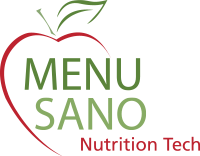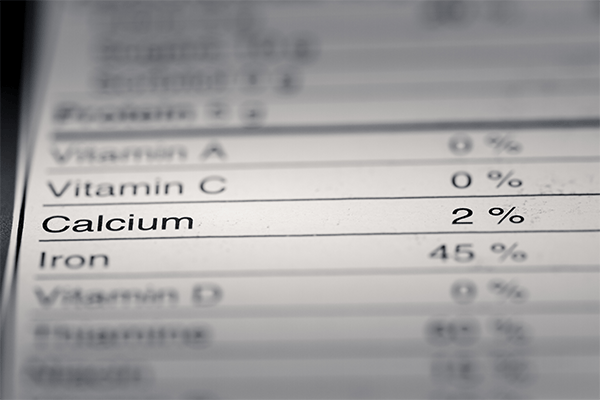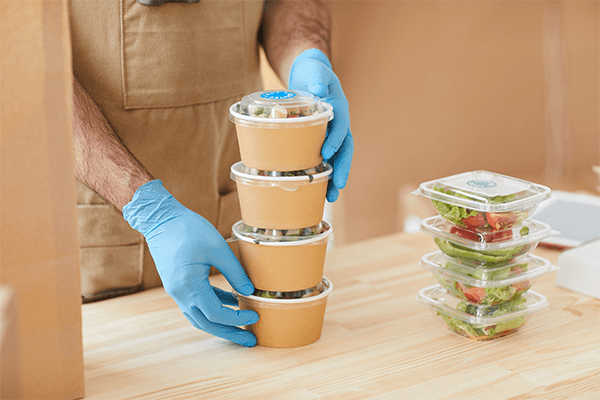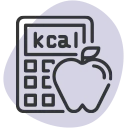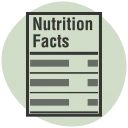As a result, nutrition labels and accurate nutrition label software has become increasingly important. Food manufacturers must ensure that all of the boxes are checked and every mandated component of the label must be present (and there are several!)
Below is a breakdown of everything that should be included on a nutrition label in order to meet industry standards.
Name and Description of the Product
It goes without saying that the name of the product must be clearly written on the label. Typically, this is the largest printed text on a food product, as it’s the most important. A description of the product includes details describing what exactly the product is. This is key information as it helps inform consumers if they want to buy that specific product, and if it is appropriate for their specific diet.
Read more: Tasty Alternatives for your favourite Junk Foods
Net Weight
To determine the net weight, subtract the average weight of the empty container, lid and any wrappers and packing materials from the average weight of the container when filled with food. Essentially, the net weight gives consumers a picture of how much the food product itself weighs minus packaging.
Expiration Date
It is vital that expiration dates are included on food labels to inform consumers when the product will go bad. This informs purchasing decisions by consumers, and prevents potential severe illnesses and reactions to food that has gone bad.
Read more: Tip to Measure and Control Portion Sizes
Ingredient list
A complete list of ingredients must be included on every nutrition label. Consumers want to know what they are purchasing and eating either themselves or feeding to their families and friends, for many reasons. They might have a food allergy, or a medical condition such as diabetes or celiac disease that requires them to omit certain things from their diet. Similarly, they may be trying to lose or gain weight, in which case this ingredients list is very important.
Read more: Canada’s New Front-of-Package Labeling Law
Nutrition Information Panel
On an FDA-approved food label, there are certain nutrients that must be included. These requirements are as follows:
- Calories
- Fat
- Trans Fats
- Saturated Fats
- Cholesterol
- Sodium
- Carbohydrates
- Fiber
- Sugars
- Added Sugars
- Protein
- Vitamin D
- Potassium
- Calcium
- Iron
This information is vital to consumers, particularly those who are trying to eliminate or add certain things to their diets (i.e. calories, fats, sugar, etc.)
Allergy Warning or Allergen Declaration
Those who live with severe food allergies or intolerances deserve to be fully informed about what they are consuming. On nutrition labels, all major allergens must be listed. These include:
- Cereals that contain gluten
- Crustaceans
- Eggs
- Fish
- Lupin
- Milk
- Molluscs
- Mustard
- Peanuts
- Sesame
- Soybean
- Sulphur dioxide
- Sulphites
- Tree nuts
On food labels specifically, it must be indicated whether or not a food product was manufactured in the same factory where it could potentially be cross-contaminated with one of these major allergens, even if the food product itself does not contain it.
Read more: What are the Benefits of Coffee, and how many cups should you drink
Name and Address
The food label must include the name and address of the manufacturer, packer, and distributor as well as the factory. Should there be something wrong with the product, consumers have contact information at their fingterips so they can report it.
Country of Origin
This indicates to consumers where food was originally produced. In addition, there are several trade agreements with numerous countries over which and what type of food can be imported. This indicates that manufacturers are remaining compliant with these regulations.
Read more: How Restaurants find Success Catering to Health-Conscious Consumers
Storage Instructions
This refers to where a consumer should store the food product. Typically, food labels will recommend either storing food in a dry place or in the refrigerator. Noting whether something needs to be refrigerated or not is crucial for consumers to know, as not refrigerating food will cause it to spoil and potentially cause severe sickness.
How MenuSano can help
Keeping track of all of these items and making sure they are all included on the nutrition label is challenging – and this is where MenuSano can help. MenuSano can help you create a comprehensive nutrition fact label, which is a core component of a food label found on a product.
Creating an accurate, comprehensive nutrition fact label will not only help your company remain compliant with the most up-to-date guidelines, but will instill confidence in your customers. MenuSano is the solution that helps you achieve these standards.
Continuously evolving industry standards make it very challenging for food industry professionals to keep up. That said, it is extremely important that industry professionals provide accurate nutrition information to their customers – starting with a complete nutrition label.
MenuSano nutritional software is an online nutrition calculator that provides an affordable, flexible, user-friendly solution that your business can use to calculate nutritional content of all of your current and future products.
Not only that, but it was designed to be compliant to align with the standards set by industry legislators and is continuously updated to maintain this status. You can make your very own nutrition fact labels in-house with MenuSano. The easy to use tool takes the worry, cost, and confusion out of nutrition facts labelling so you can concentrate on what you do best; cooking great food with great service.
MenuSano is a very effective tool because:
- Its design is flexible, user-friendly and convenient
- The information is accurate
- The database of ingredients is extensive
- Has recipe experimentation capabilities
- Compliant with US, Canadian, and UK regulations
- Consistently updated to keep up to code with the above regulations
If you’re looking for a simple solution to make your Nutrition Fact Labels, then sign up for a free trial of MenuSano today!
How to Create an FDA Approved Nutrition Facts Label
A nutrition facts label is designed to reflect the most up-to-date recommendations from the Food and Drug Administration regarding the nutrition facts of certain foods. There are different options when it comes to creating nutrition facts labels, such as using laboratory analysis, consulting with a dietitian, and using nutrition analysis software.

